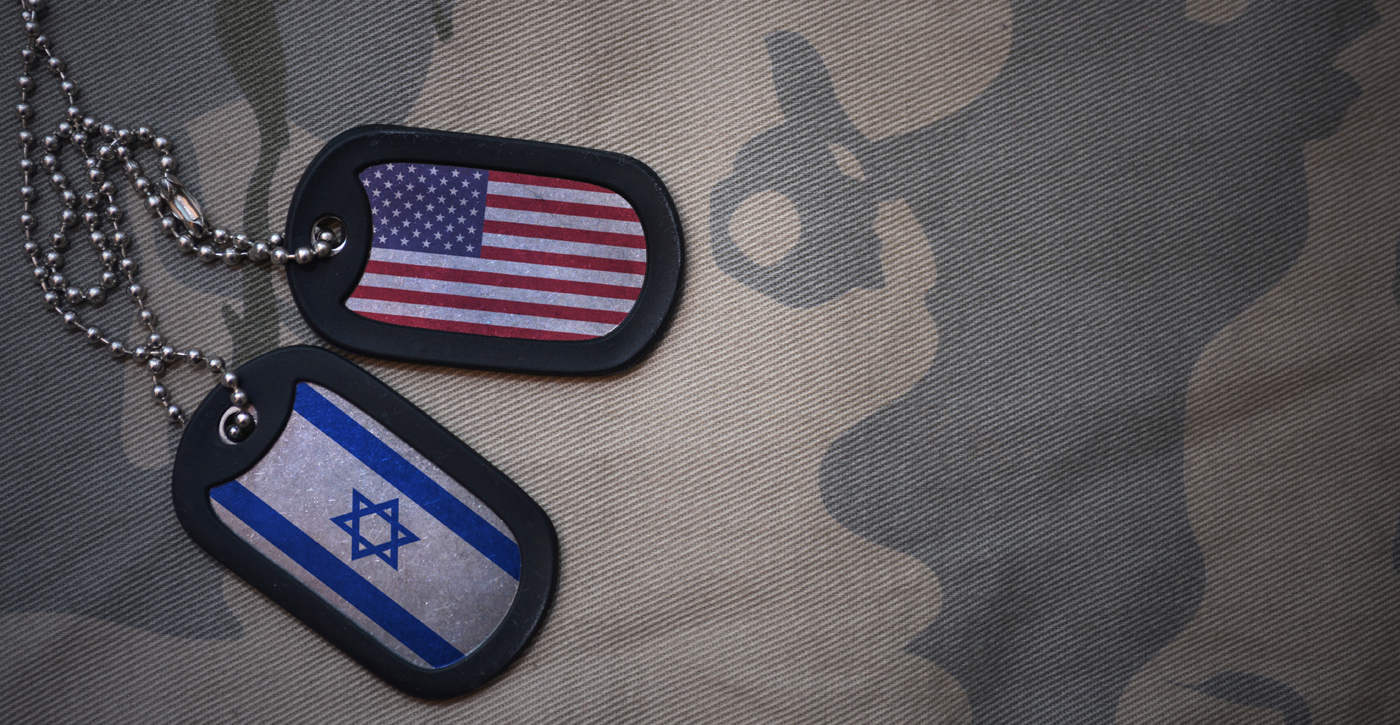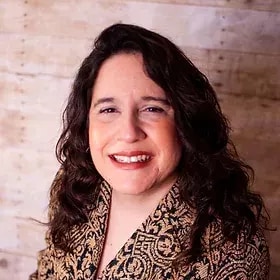Citing concerns about Palestinian human rights, American Friends Service Committee (AFSC) and Friends Committee on National Legislation (FCNL) joined eight other U.S.-based religious organizations in signing a letter calling on the Biden administration and Congress to discontinue military aid to Israel. The groups expressed a desire to act as Christian peacemakers and said they are “seeking a just peace for Palestinians and Israelis.”
Authors of the letter, dated March 10, state that Israeli Prime Minister Benjamin Netanyahu and his ministers intend to expand Israeli settlements and annex the West Bank, where Israelis are currently leveling Palestinian homes and other buildings.
“When Secretary of State Antony Blinken spoke about the incoming Israeli government, he named Palestinian rights as a value to which the U.S. must commit. Living that commitment means holding Israel accountable and ending unrestricted assistance,” the letter reads.
“As Israel continues to violate the rights of the people living under its control, violating international law and principles of human rights—as well as U.S. laws—the U.S. must end its military support of Israel, which amounts to $3.8 billion a year,” the letter continues.
AFSC and FCNL are Quaker organizations, but they do not represent the opinions of all Quakers or Quaker sympathizers. One Friend familiar with the region objected to the letter.
The letter undermines Quakers’ moral standing in the world and represents a departure from Friends’ traditional non-partisan humanitarian values, according to Cap Kaylor, who was previously deeply involved in University Friends Meeting in Norman, Okla., before moving to Tulsa, Okla., in recent years.
“At best it sounds like some kind of virtue signaling, and at worst hubris,” Kaylor said of the letter.
Kaylor traveled to Israel three times and has visited Kuwait, Saudi Arabia, and the United Arab Emirates. He described Israel as the only democracy in the Middle East and the United States’ sole friend in a dangerous region. Kaylor is concerned about Hamas and Hezbollah, at the behest of Iran, preventing peace between Israelis and Palestinians.
An attender of a Pennsylvania meeting who is culturally Jewish and has relatives and friends living in Israel recalled feeling terrified for his loved ones when he “saw Israel as objectively under attack” many times since its founding in 1948. The attender requested anonymity due to the sensitivity of the subject.
“I am troubled by the statement’s focus on Christian leaders, and by its dependence on data from 2011 and earlier, but I think that anything we can do to dial back the violence, bloodshed, and murder is a good thing,” the attender said.
Other Friends also support the letter. The letter appropriately addresses U.S. complicity in an immoral political structure, according to Steve Chase, a member of Friends Meeting of Washington (D.C.), who is writing a book on Quaker views of the Israeli–Palestinian conflict.
“U.S. people have a right not to support a system of apartheid,” said Chase, who wrote the Pendle Hill pamphlet Boycott, Divestment and Sanctions? A Quaker Zionist Rethinks Palestinian Rights.
According to Chase, Quakers fall into four main schools of thought on the conflict: disinterested or demoralized; strongly Zionist; diplomats who sympathize with both sides; and those who support Palestinians’ call for boycott, divestment, and sanctions against Israel.
U.S. leaders have given varied responses to the letter.
“We had a few representatives who responded negatively and a few who expressed support,” said Mike Merryman-Lotze, Middle East Program director at AFSC. The Biden administration has not directly responded to AFSC.
FCNL has not gotten a response to the letter from the Biden administration or Congress members, according to Hassan El-Tayyab, legislative director for Middle East policy at FCNL.
El-Tayyab noted that changing the opinions of Congress members and the president is an incremental process. He cited FCNL’s successful advocacy for reducing U.S. military aid to Saudi Arabia, saying this progress could be a precedent for addressing the conflict in Israel-Palestine.
“Blank check support to Saudi is not a given anymore,” El-Tayyab said.
Senator Bernie Sanders and Representative Alexandria Ocasio-Cortez have spoken in favor of setting conditions on U.S. military aid to Israel, according to El-Tayyab. Senators Chris Murphy and Chris Van Hollen advocate preventing U.S. funds from being used to annex the West Bank, he said.
The United States should use its influential relationship with the Israeli government to endorse significant changes because the United States currently funds apartheid policies that oppress the Palestinians, Merryman-Lotze said.
Merryman-Lotze is not sure that Quakers have more influence on U.S. policy in the Middle East than other parties although Friends have a long history in the region. In the 1800s they established Ramallah Friends Schools, which sought to educate Palestinian children.
In 1948, AFSC staffers predicted that Palestinian refugees not returning to their homes would create longstanding problems, Merryman-Lotze said. At the time, AFSC committed to working with both sides. In 1970, AFSC promoted establishing an independent Palestinian state which became a mainstream U.S. view in the 1990s.
AFSC does not currently call for a one-state or two-state solution but advocates for a peace agreement that entails equality and respect for human rights, according to Merryman-Lotze. Peace in the region depends on ending human rights abuses against Palestinians, Merryman-Lotze said.
Human rights abuses Palestinians suffer include “arbitrary detention, house demolition, and collective punishment,” said Sam Bahour, a Palestinian whose children attended Ramallah Friends School.
Israel punishes Palestinians as a group, using destruction of infrastructure and confiscating of dead bodies, for the actions of Hamas, according to Bahour, who works as a business consultant and independent political analyst.
Asked to comment on the argument that Israel needs U.S. military aid to ensure its continued existence, Bahour said that the approximately $4 billion the U.S. sends to Israel is a small portion of the Israeli economy. Israel has a $550 billion economy so if the U.S. cut off aid, settlement activity would decrease but Israel would not face an existential threat, according to Bahour.
The Israeli Embassy in the United States did not reply to an email seeking comment.
Halting settlement activity would increase the likelihood of peace in the area, according to Amos Gvirtz, an Israeli Jew who founded the Israeli Committee Against House Demolition and the peace group Palestinians and Israelis for Nonviolence. Gvirtz noted that Israel previously made peace with Egypt and Jordan.
“The whole issue is that Israel wants the land without the people,” Gvirtz said.
Others consider eventual peace unlikely due to deeply entrenched positions.
Palestinians refuse to allow Israel to exist, according to Christine Pattee, a former member of Storrs (Conn.) Meeting, whose Catholic mother left Germany for the United States in 1932, as the Nazis gained power. Pattee is concerned about the outbreak of a civil war in Israel–Palestine and fears that Iran might become directly involved.
“You have an immovable object and an immovable force,” Pattee said.
Some Israelis and Palestinians consider U.S. military aid key to sustaining the conflict. Rami Elhanan, an Israeli whose 14-year-old daughter, Smadar, was killed by a Palestinian suicide bomber in 1997, describes unconditional U.S. military support for Israel as a barrier to peace.
“Everything that the U.S. is doing since the early ’70s of the last century until today is prolonging suffering, contributing to the continuation of the occupation and creating situation with the only power around the world with the capability of doing something in order to finish this stupid conflict which goes on for so many years without being able to be an honest broker,” said Elhanan, whose father survived the Auschwitz concentration camp in Poland.
Elhanan’s grandparents died in the Holocaust. The United States cannot honestly participate in peace negotiations because of its continued military, political, and moral support for the Israeli occupation, according to Elhanan. Elhanan previously served in the Israel Defense Forces.
Elhanan is the former Israeli codirector of the Parents Circle–Families Forum, an organization that fosters dialogue among Israelis and Palestinians who have lost loved ones in the conflict. The former Palestinian codirector of the group, Bassam Aramin, whose ten-year-old daughter, Abir, was killed by an Israeli border police officer in 2007, served seven years in an Israeli prison for throwing hand grenades and stones at Israelis. After leaving prison, he earned a master’s degree in Holocaust studies from the University of Bradford in England. Aramin noted that a large percentage of the U.S. aid is specifically earmarked for military assistance, not for peaceful development. Aramin’s view of the United States’ role in the conflict echoed Elhanan’s.
“We are victims. We are bullets in their guns—both sides. They know that the Palestinians will never give up; they must be free. And Israelis will never escape from here. They don’t need, in fact, to convince us that no side will disappear. We must live together. But they need to decide that this is the time to invest in peace between the Israelis and the Palestinians,” Aramin said.
Correction: An earlier version of this story used an incorrect pronoun for Cap Kaylor. It has been corrected.





The FCNL and AFSC statements in this and similar cases is exactly the wrong thing for Friends to be doing or saying. The moment we single out one conflict over another we become just another worldly organization spouting a political, not a faith perspective. It diminishes Friends and renders our peace testimony absolutely meaningless. They have NO right to pretend they speak for Friends in something so fundamental. It makes me sad and ashamed and not just a bit angry.
As a convinced Friend of Jewish ancestry, I am convinced that the step towards peace that AFSC & FCNL are taking by joining eight other U.S.-based religious organizations in signing a letter calling on the Biden administration and Congress to discontinue military aid to Israel is the one that is long overdue. I was moved to tears to see how the Israeli military & government bulldozed olive trees and homes, dumped sewage water on farmland and humiliated Palestinian seniors. The proof was/is evident. Israel is not a democracy and $4.8 billion of U.S. tax is being poorly spent in support of apartheid.
So, wait: It IS upholding the peace testimony to believe that war is bad and to wish it didn’t happen, but NOT upholding the peace testimony to take nonviolent action intended to help bring an end to any one actual conflict?
(Now, is it overly optimistic to believe that the Israeli-Palestinian conflict would end if the U.S. would simply stop funding/supplying it? Maybe. But there’s only one way to find out for sure.)
Every Friend has every right to speak and act as they discern they have been led by Spirit, to convey the message they have been given to share for whoever has ears to hear it, or eyes to bear witness to it.